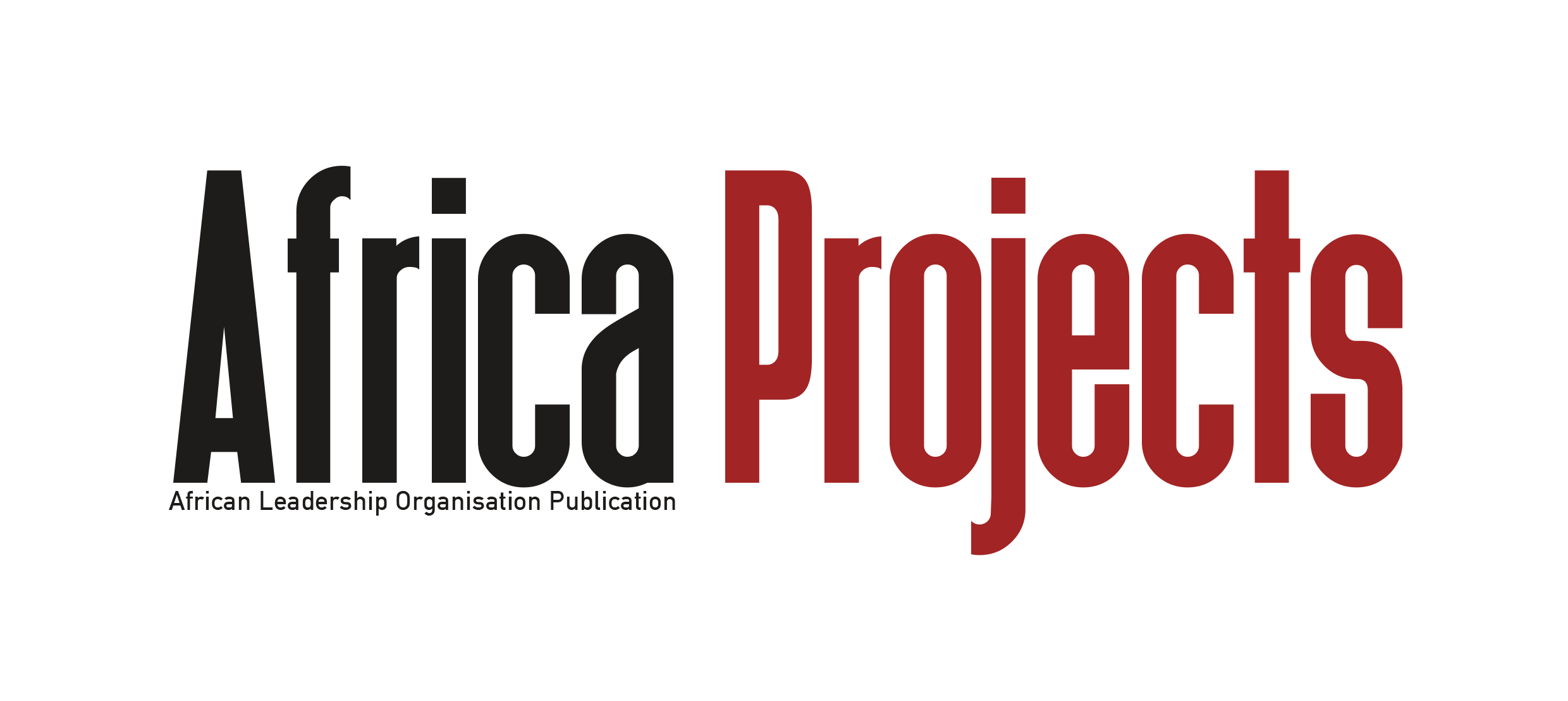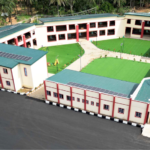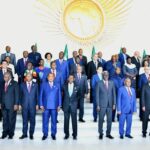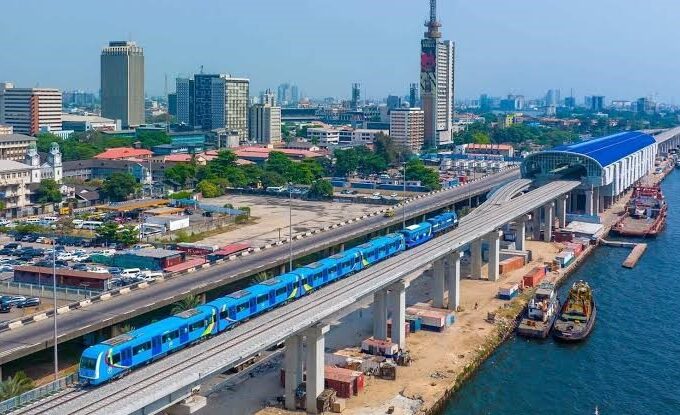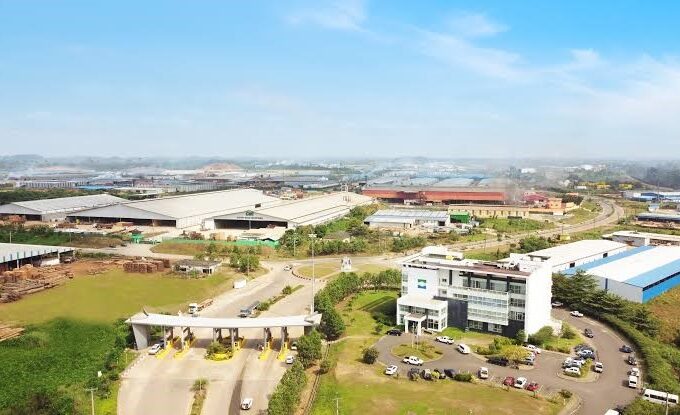- Home
- Features
- Startup Zone
- Projects
- Policies
- Shop
- Policies
- Projects
- Startup Zone
- Country Spotlight
- Analysis
- Tech
- Policies
- Projects
- Startup Zone
- Country Spotlight
- Analysis
- More
- Beyond the Kalashnikov: Africa’s Shift Toward Technology-Driven Warfare
- Afrail Express: Uniting a Continent on Rails
- AFRICA’S ENERGY CORRIDORS: CONNECTING POWER, PEOPLE, AND PROSPERITY
- Startup Lions Campus: Empowering Kenya’s Digital Generation
- L’Art de Vivre’s Le Paradis de Mahdia: Tunisia’s Model for Sustainable Luxury
- The Lobito Corridor: Rewiring Africa’s Trade Arteries Through Strategic Infrastructure
- AFRICA’S GREEN ENERGY TRANSITION: A BEACON OF HOPE FOR CLIMATE ACTION
- Dangote Refinery: Showcasing Africa’s Project Success Story
- AFRICA GREEN ECONOMY: ALL YOU NEED TO KNOW
- The Most Important Amicus Brief in the History of the World
- The Rise of Indigenous UAVs: Africa’s Drone Capabilities in Warfare and Surveillance
- AFRICA’S LARGEST OIL PRODUCERS: A COMPREHENSIVE OVERVIEW
- Beyond the Kalashnikov: Africa’s Shift Toward Technology-Driven Warfare
- Afrail Express: Uniting a Continent on Rails
- AFRICA’S ENERGY CORRIDORS: CONNECTING POWER, PEOPLE, AND PROSPERITY
- Startup Lions Campus: Empowering Kenya’s Digital Generation
- L’Art de Vivre’s Le Paradis de Mahdia: Tunisia’s Model for Sustainable Luxury
- The Lobito Corridor: Rewiring Africa’s Trade Arteries Through Strategic Infrastructure
- AFRICA’S GREEN ENERGY TRANSITION: A BEACON OF HOPE FOR CLIMATE ACTION
- Dangote Refinery: Showcasing Africa’s Project Success Story
- AFRICA GREEN ECONOMY: ALL YOU NEED TO KNOW
- The Most Important Amicus Brief in the History of the World
- The Rise of Indigenous UAVs: Africa’s Drone Capabilities in Warfare and Surveillance
- AFRICA’S LARGEST OIL PRODUCERS: A COMPREHENSIVE OVERVIEW
- Beyond the Kalashnikov: Africa’s Shift Toward Technology-Driven Warfare
- Afrail Express: Uniting a Continent on Rails
- AFRICA’S ENERGY CORRIDORS: CONNECTING POWER, PEOPLE, AND PROSPERITY
- Startup Lions Campus: Empowering Kenya’s Digital Generation
- L’Art de Vivre’s Le Paradis de Mahdia: Tunisia’s Model for Sustainable Luxury
- The Lobito Corridor: Rewiring Africa’s Trade Arteries Through Strategic Infrastructure
- Startup Zone
Top Insights
Africa Sports Development: A Journey of Potential and Challenges
One of the primary challenges facing African sports development is the lack of adequate infrastructure.

Africa has a rich sporting heritage, boasting a diverse array of athletic talents across various disciplines. From the stunning energy of football to the graceful movements of athletics, African sports have captured the world’s attention. However, the development of sports in Africa is a complex landscape, intertwined with economic, social, and political factors.
Challenges and Hurdles
One of the primary challenges facing African sports development is the lack of adequate infrastructure. Many countries lack sufficient sporting facilities, such as stadiums, training grounds, and gyms. This limits access to sports for many aspiring athletes and hinders their development.
Funding is another significant obstacle. Limited government funding and private investment often leave sports organizations and athletes struggling to secure the necessary resources for training, equipment, and participation in international competitions. This financial constraint can stifle the growth of sports and limit the opportunities for athletes to reach their full potential.
Corruption and mismanagement within sports organizations also pose a significant challenge. Lack of transparency and accountability can lead to the misappropriation of funds, hindering the development of sports at the grassroots level.
Opportunities and Potential
Despite these challenges, Africa possesses immense potential for sports development. The continent boasts a young and vibrant population, with a wealth of untapped talent. This demographic dividend can be harnessed to cultivate a new generation of sporting stars.
Football remains the most popular sport in Africa, with numerous talented players gracing the world’s top leagues. The continent has also produced world-class athletes in track and field, boxing, and other disciplines. These successes demonstrate the potential for African sports to thrive on the global stage.
The growing popularity of sports in Africa also presents economic opportunities. The sports industry can generate revenue through ticket sales, broadcasting rights, and sponsorship deals. This can contribute to economic growth and create jobs for young people.
Strategies for Development
To unlock the full potential of African sports, a multi-pronged approach is needed. This includes:
Investing in infrastructure: Governments and private investors need to invest in the construction and maintenance of sporting facilities across the continent. This will provide access to sports for more people and create a conducive environment for talent development.
Improving governance: Transparent and accountable governance structures are essential for the sustainable development of sports. This includes ensuring the effective use of funds and promoting ethical practices within sports organizations.
Developing grassroots programs: Investing in grassroots programs can help identify and nurture young talent. This includes providing access to quality coaching, training, and equipment.
Leveraging technology: Technology can play a crucial role in sports development. This includes using data analytics to improve performance, leveraging social media to engage fans, and utilizing online platforms for training and education.
Promoting regional and continental cooperation: Collaboration between African countries can help share resources, expertise, and best practices. This can also facilitate the development of regional and continental sporting events.
Conclusion
African governments should prioritize sports investments that align with the continent’s strengths, potential for economic growth, and social impact. Investment in the following sports can unify the continent and drive development.
Football (Soccer):
Football is very popular globally, with huge investment in football, existing infrastructure, potential for significant economic returns through leagues, academies, and tourism. Every once in two years the continent hosts an international football tournament known as the Africa Cup Of Nations, with 24 of the 54 African countries participating in the continental showpiece. Football has become a unifying force in Africa.
Developing grassroots programs, improving coaching standards, investing in youth academies, and supporting women’s football are all ways by which government can support sports development.
Athletics (TRACK AND FIELD)
Governments in Africa should look at huge investment in providing infrastructure to encourage athletes skilled in various track and field events. This requires Strong tradition of excellence, relatively low-cost infrastructure requirements, potential for individual and national pride.
It is imperative for Africa leaders to Identify and nurture young talent, providing access to quality training facilities and coaches, and supporting participation in international competitions.
Basketball:
Growing popularity, increasing number of African players in global leagues (NBA), potential for economic and social impact.
Developing youth leagues, improving coaching infrastructure, and promoting women’s basketball can create better opportunities for young Africans on the continent.
Sports Tourism:
Potential to attract international visitors, generate revenue, and create jobs.
Developing world-class sporting facilities, hosting major international events, and promoting sports tourism destinations can boost the economic capital of the continent.
Indigenous Sports:
Preserving cultural heritage, promoting local traditions, and fostering community development.
Documenting and promoting indigenous sports, supporting local competitions, and integrating them into national sporting events.
Para-sports:
Promoting inclusivity, providing opportunities for athletes with disabilities, and inspiring others.
Developing para-sport programs, providing access to specialized equipment and training, and supporting participation in international competitions.
E-sports:
Growing global industry, potential for youth engagement and economic development.
Developing e-sports infrastructure, supporting local tournaments, and fostering a competitive e-sports ecosystem.
By strategically investing in these sports, African governments can harness the power of sports to drive economic growth, promote social development, and inspire future generations.
The development of sports in Africa is a journey of both potential and challenges. By addressing the existing obstacles and capitalizing on the opportunities, Africa can unlock the full potential of its sporting talent. This will not only benefit individual athletes but also contribute to the social and economic development of the continent.
Recent Posts
Related Articles
Airports in Transformation: Ethiopia’s Vision for Bole
Ethiopia is charting an ambitious course to elevate its status as Africa’s...
ByafricaprojectAugust 13, 2025Women in South African Construction: Progress and the Road to Equality Ahead of Women’s Day 2025
As South Africa approaches National Women’s Day on August 9, 2025, there’s...
Byadmag_adminJune 12, 2025TOP 5 MEGA CITIES IN AFRICA
Africa is home to some of the fastest-growing cities in the world....
Byadmag_adminJune 12, 2025From Vision To Value: How Africa’s Special Economic Zones Are Powering Industrialisation
The signs of an industrial revolution, driven by the strategic development of...
Byadmag_adminJune 11, 2025